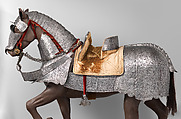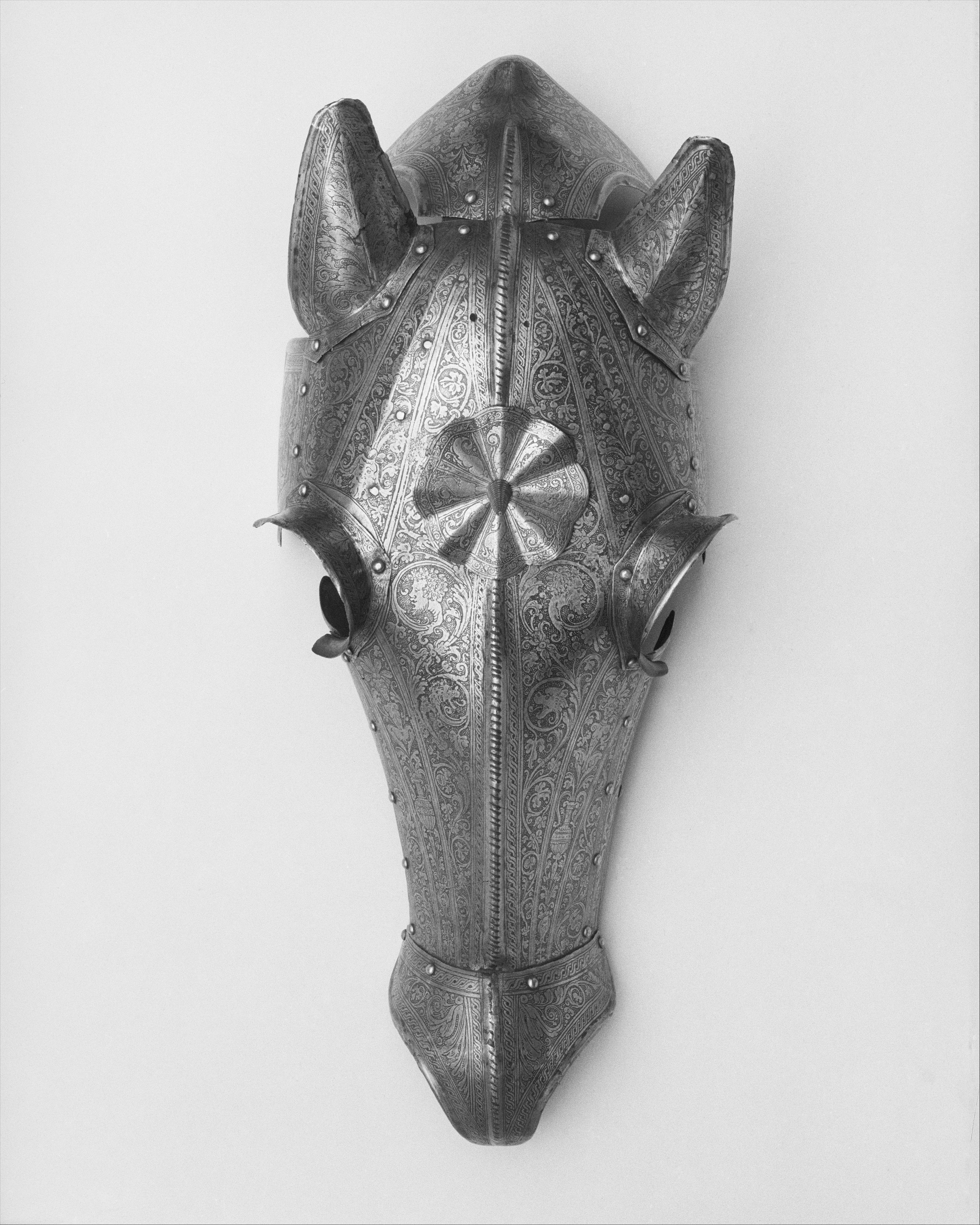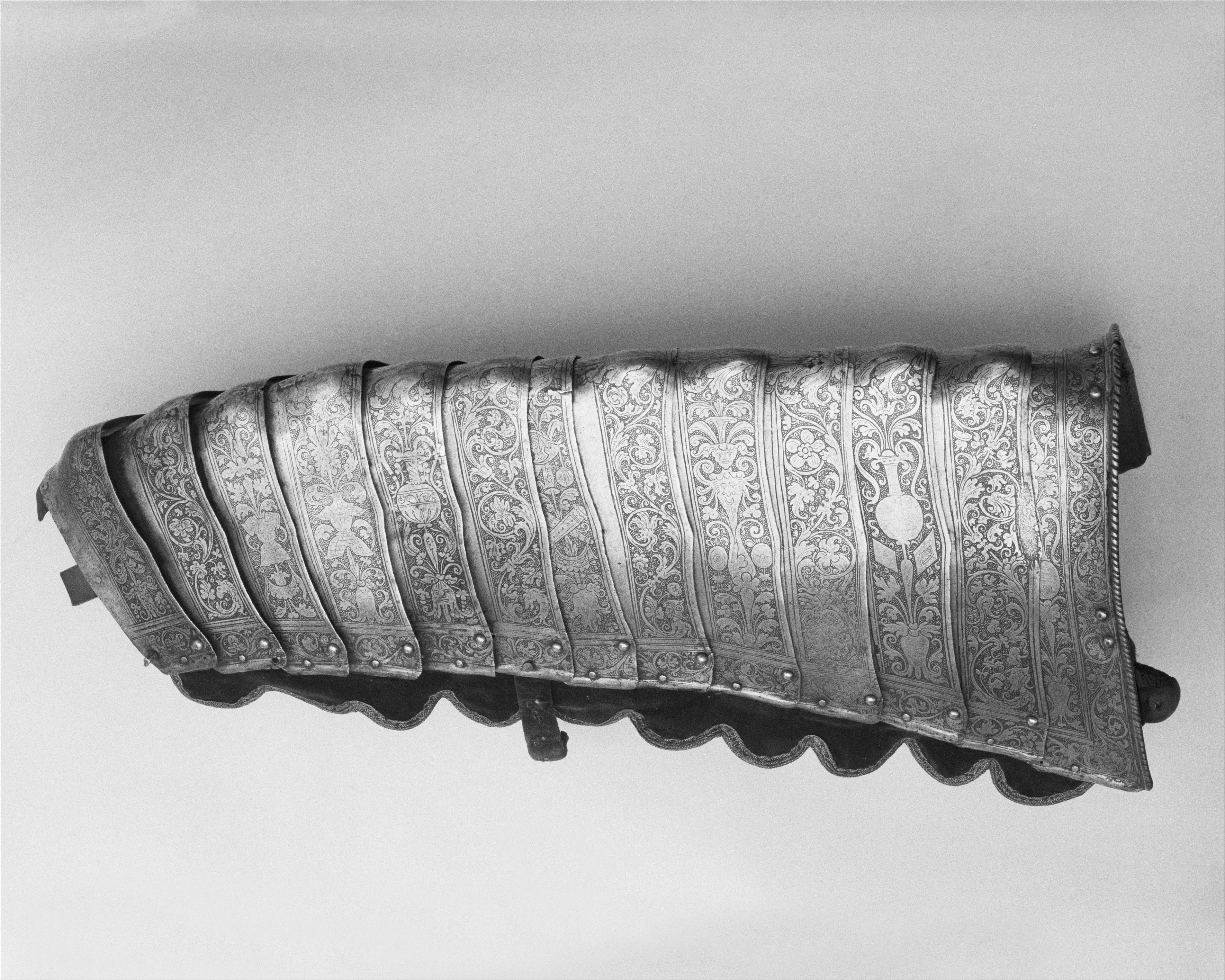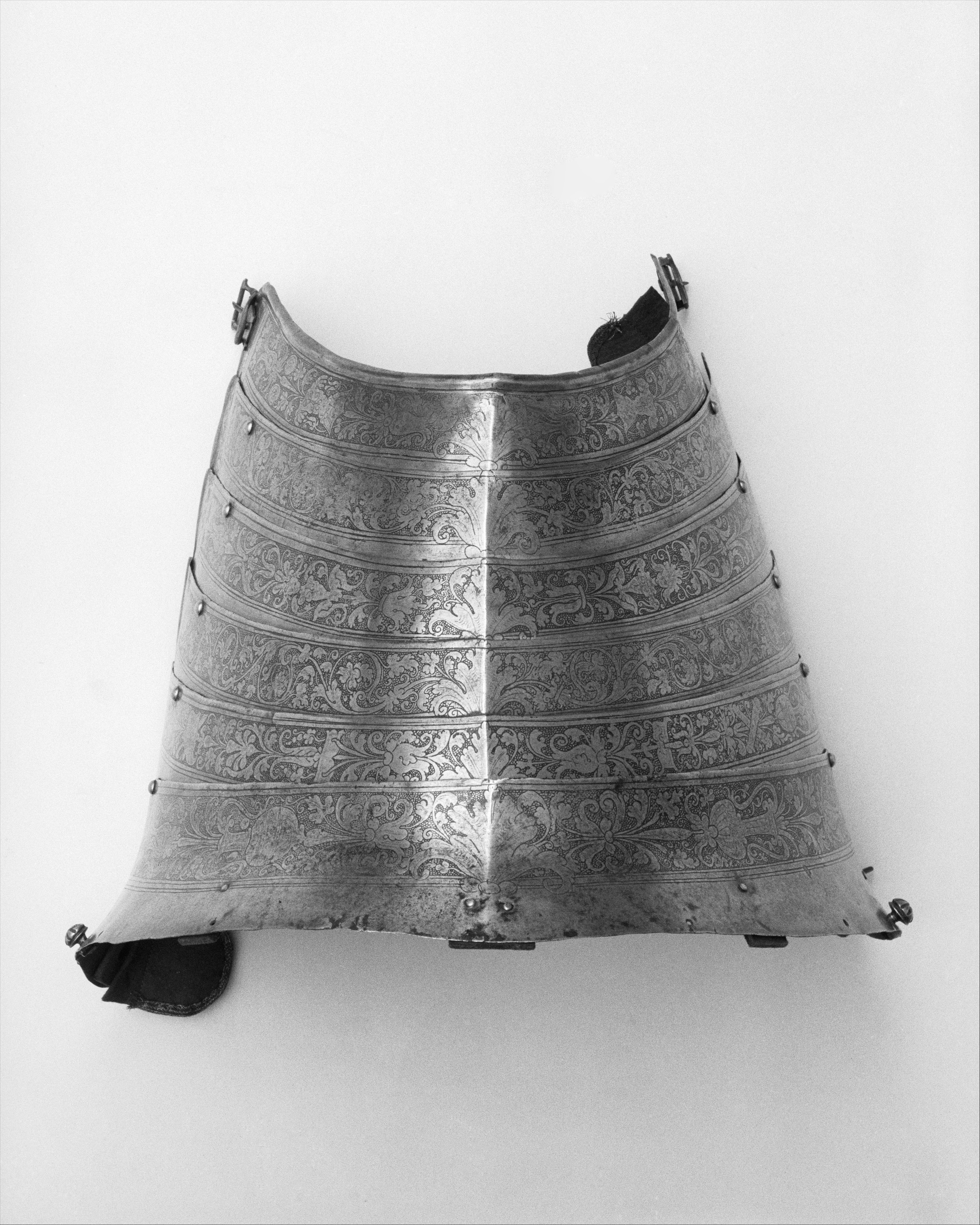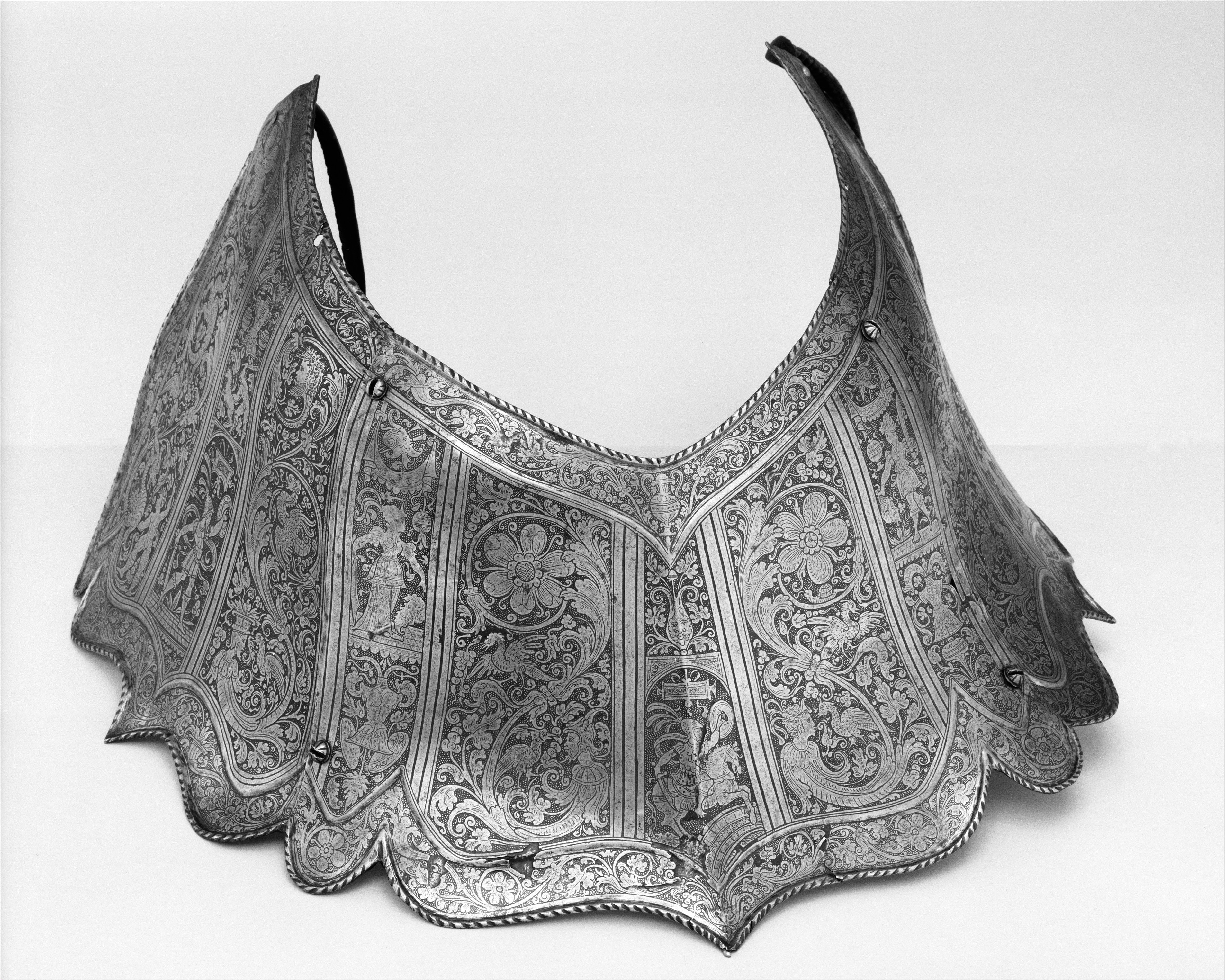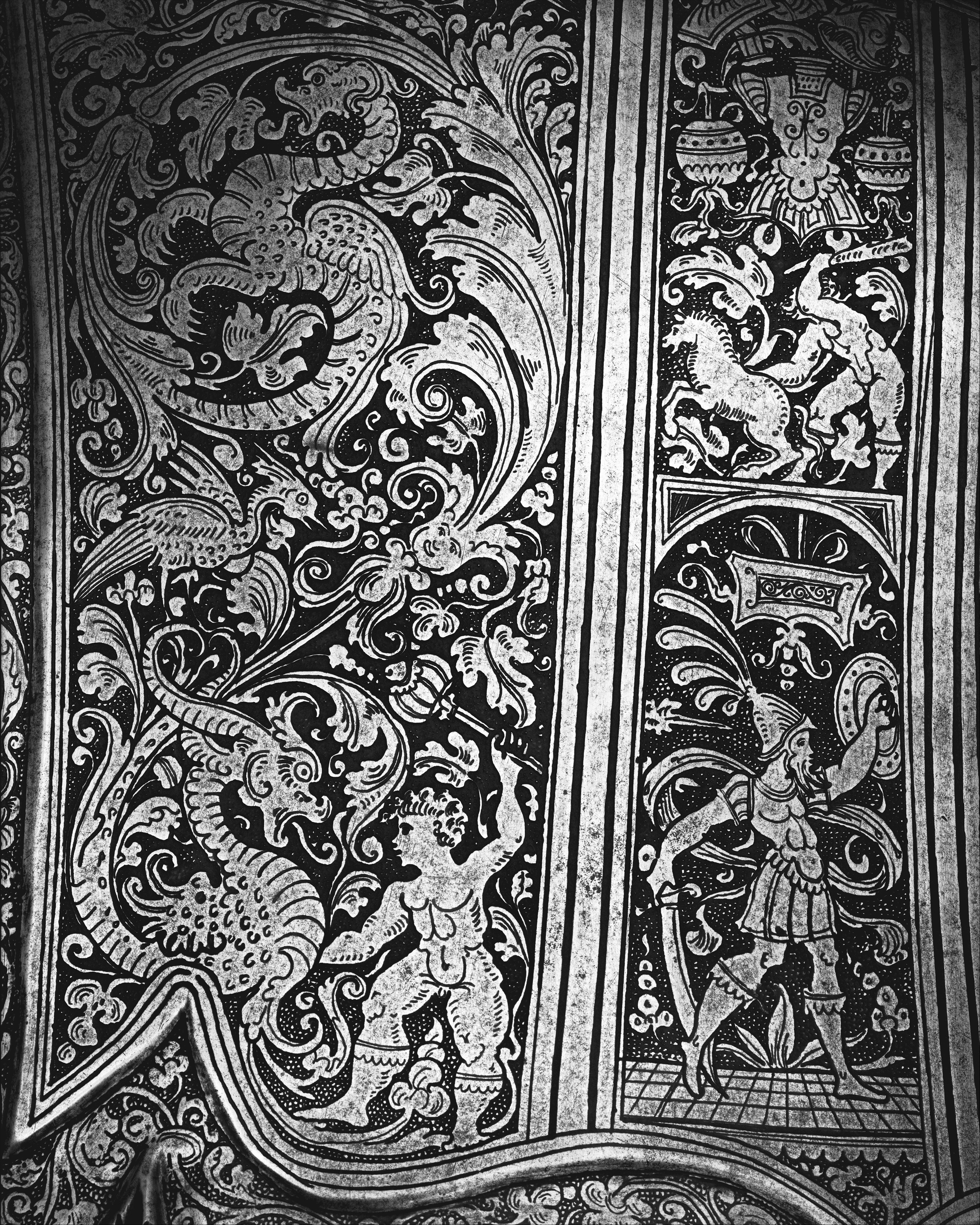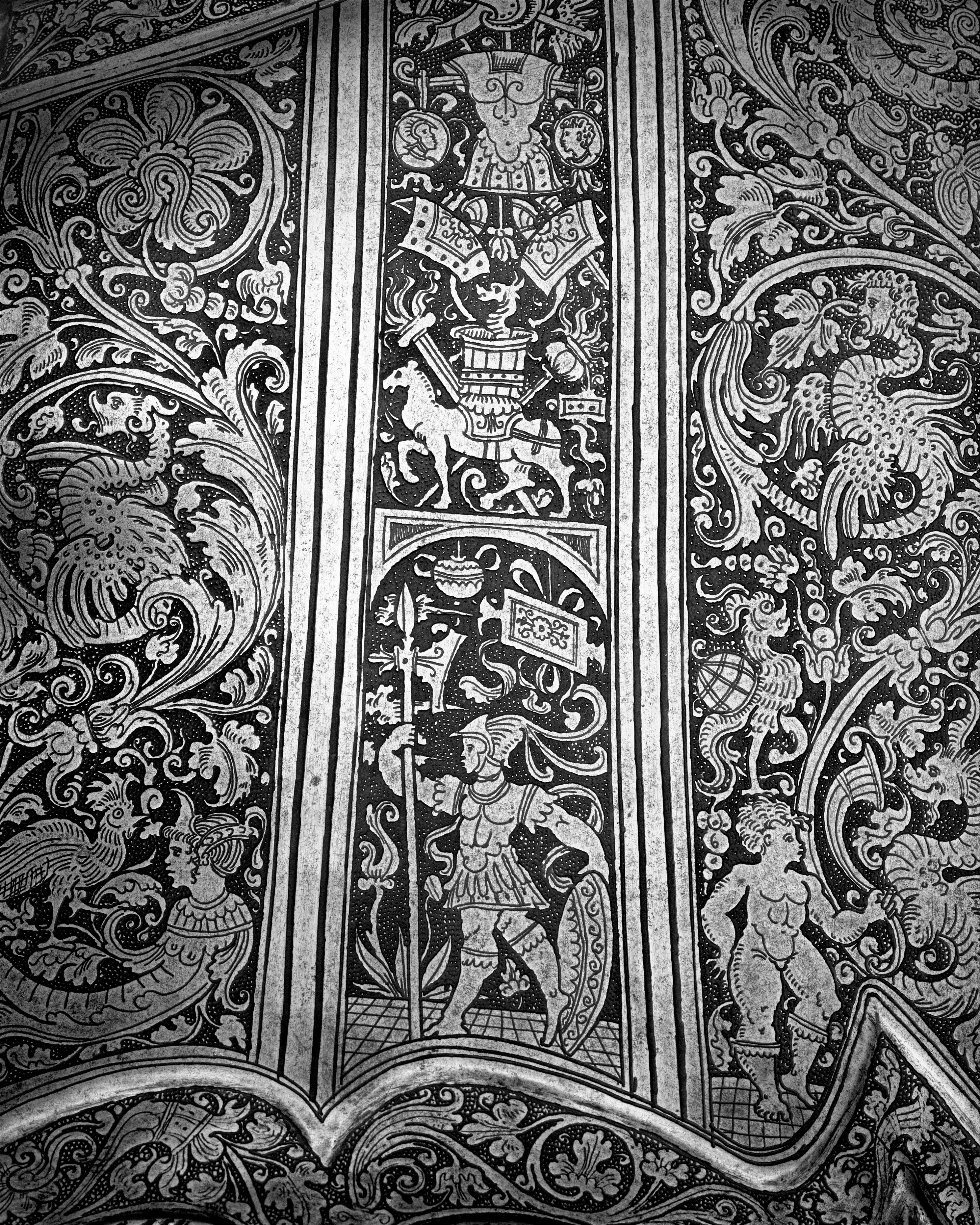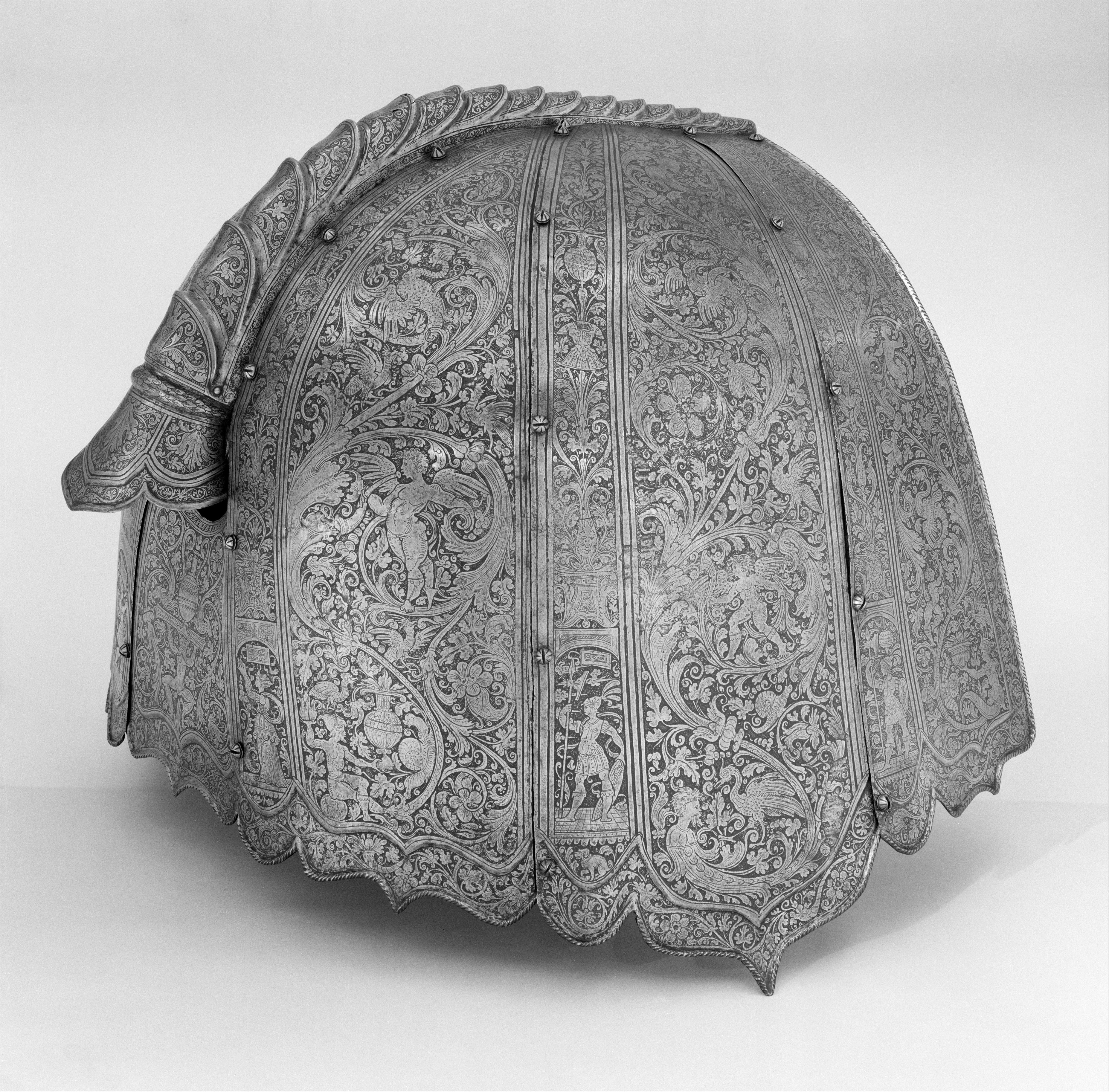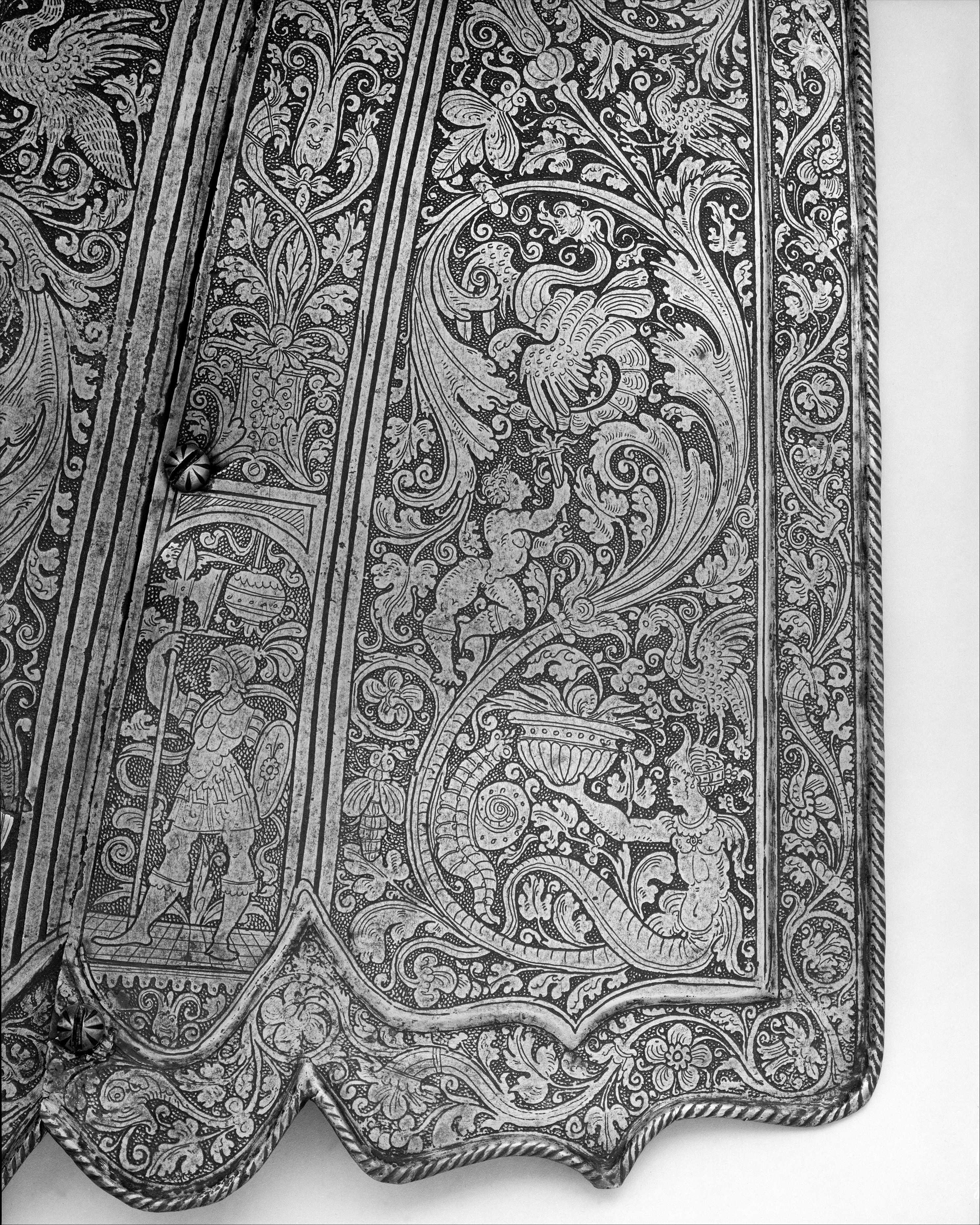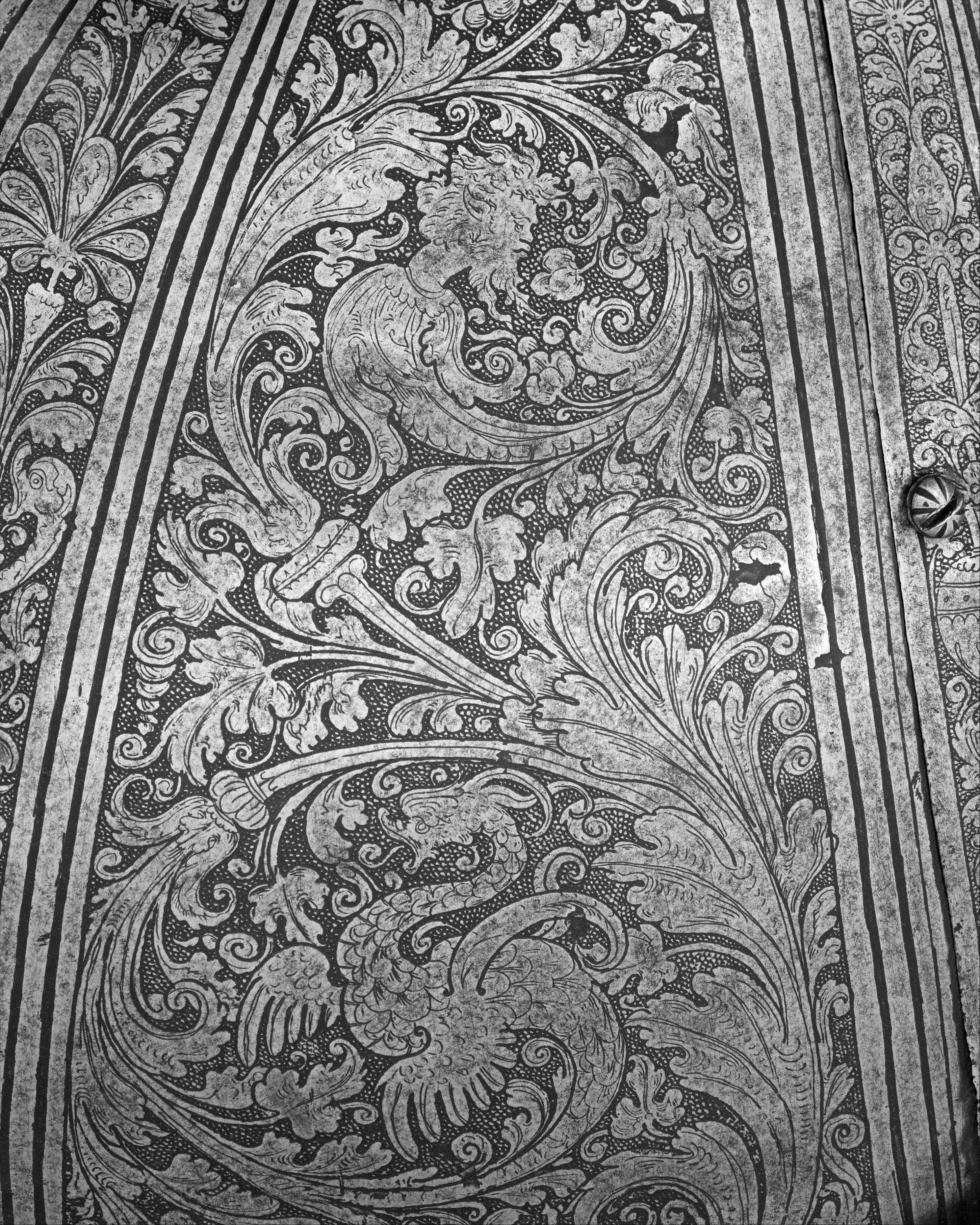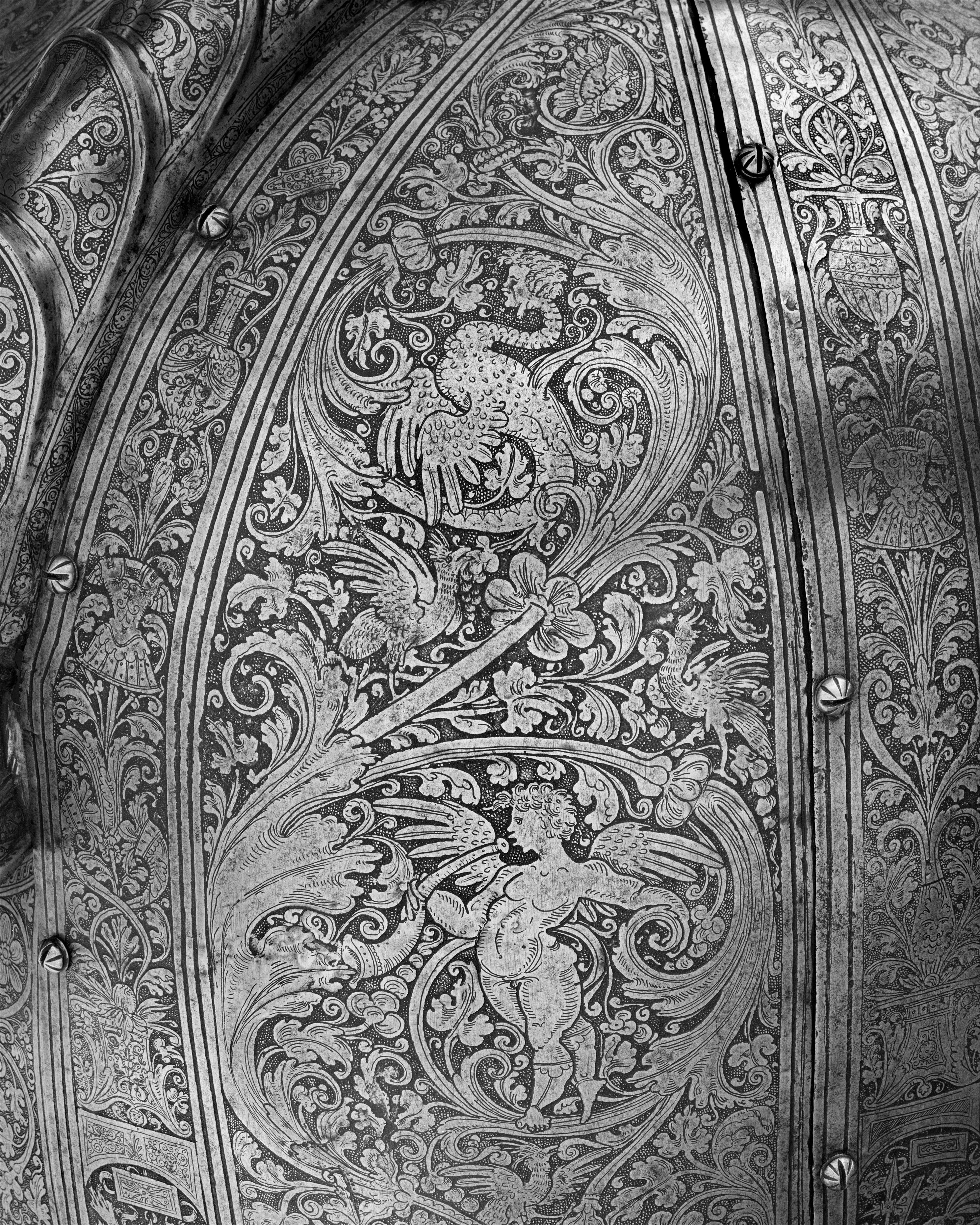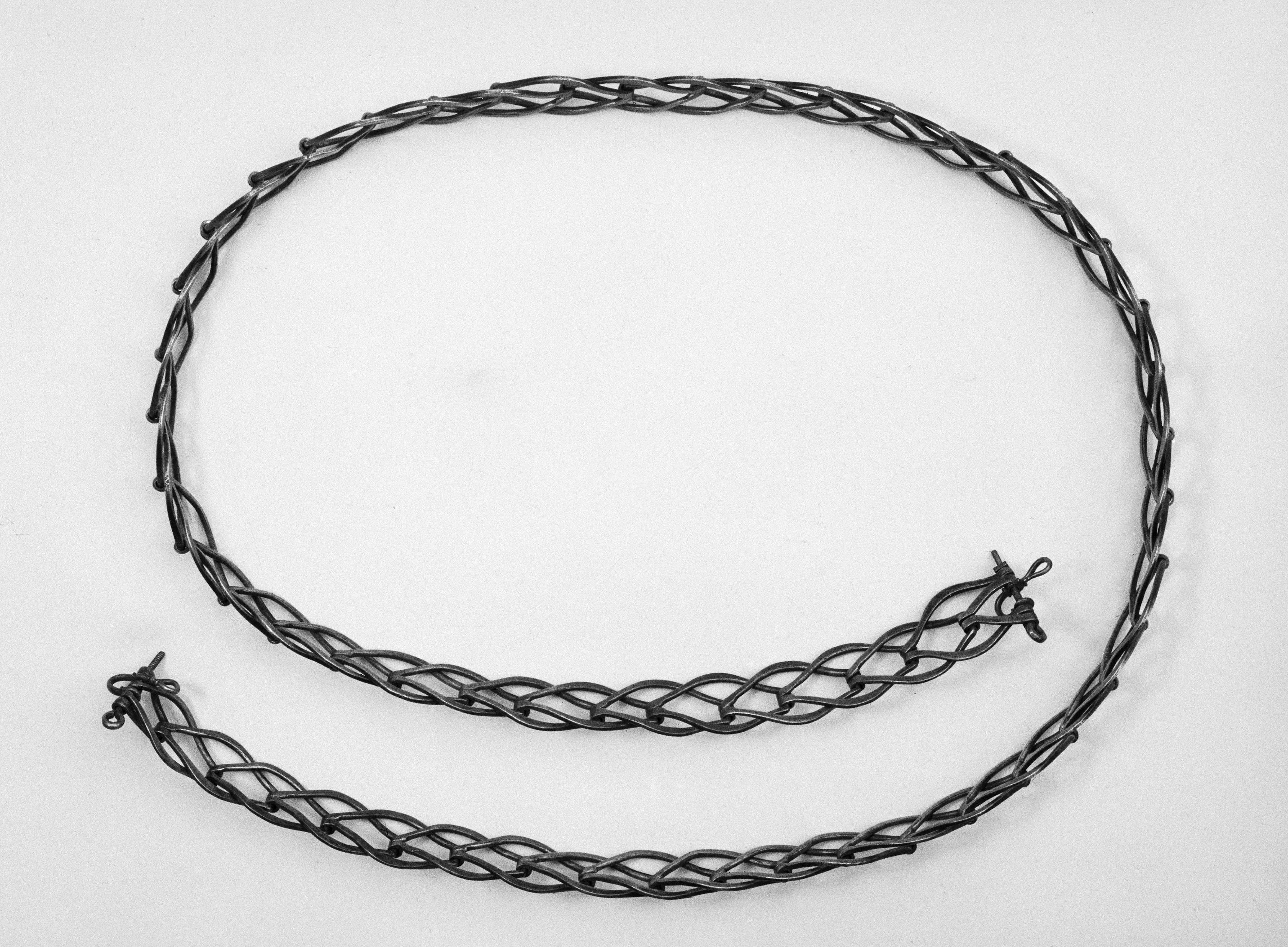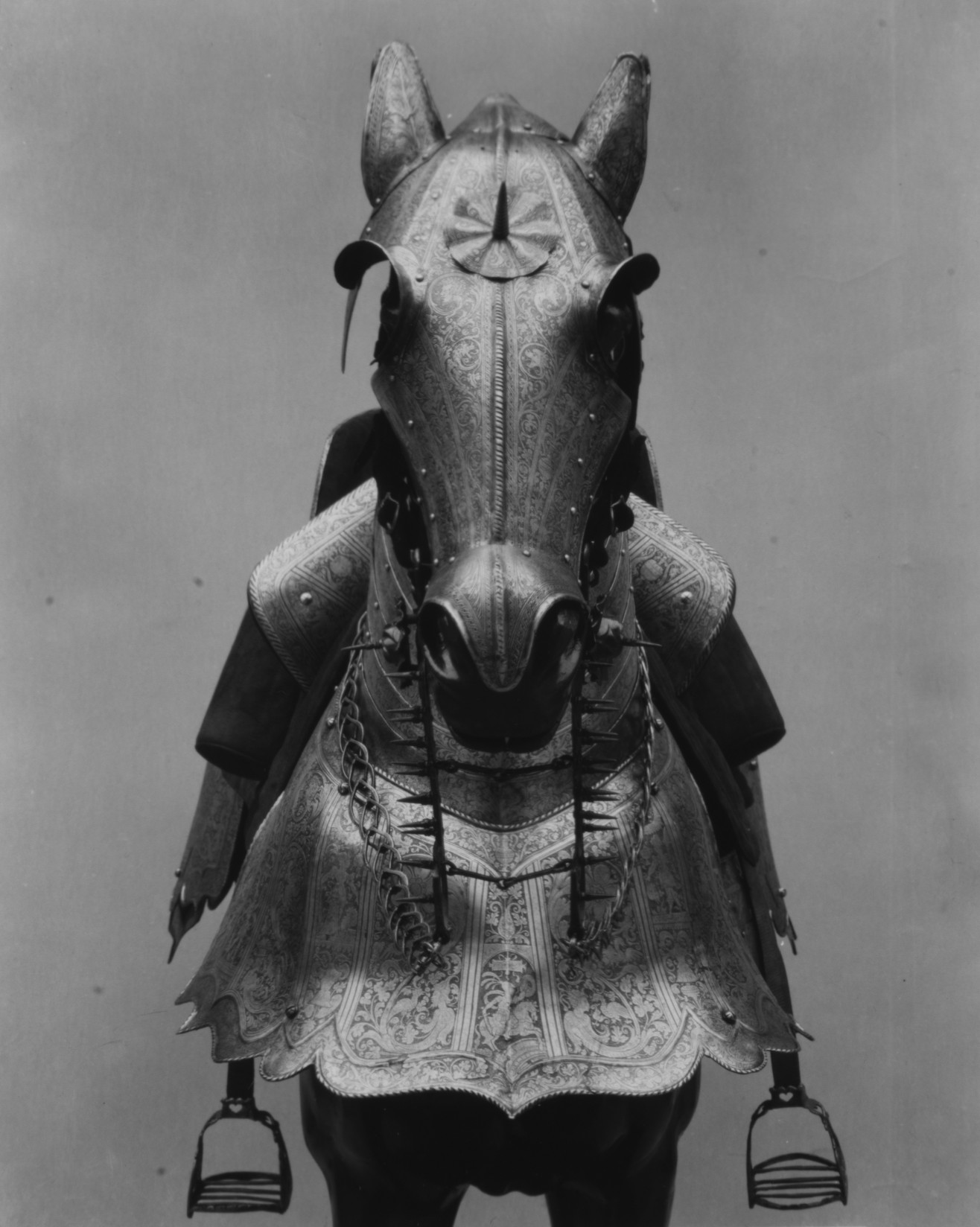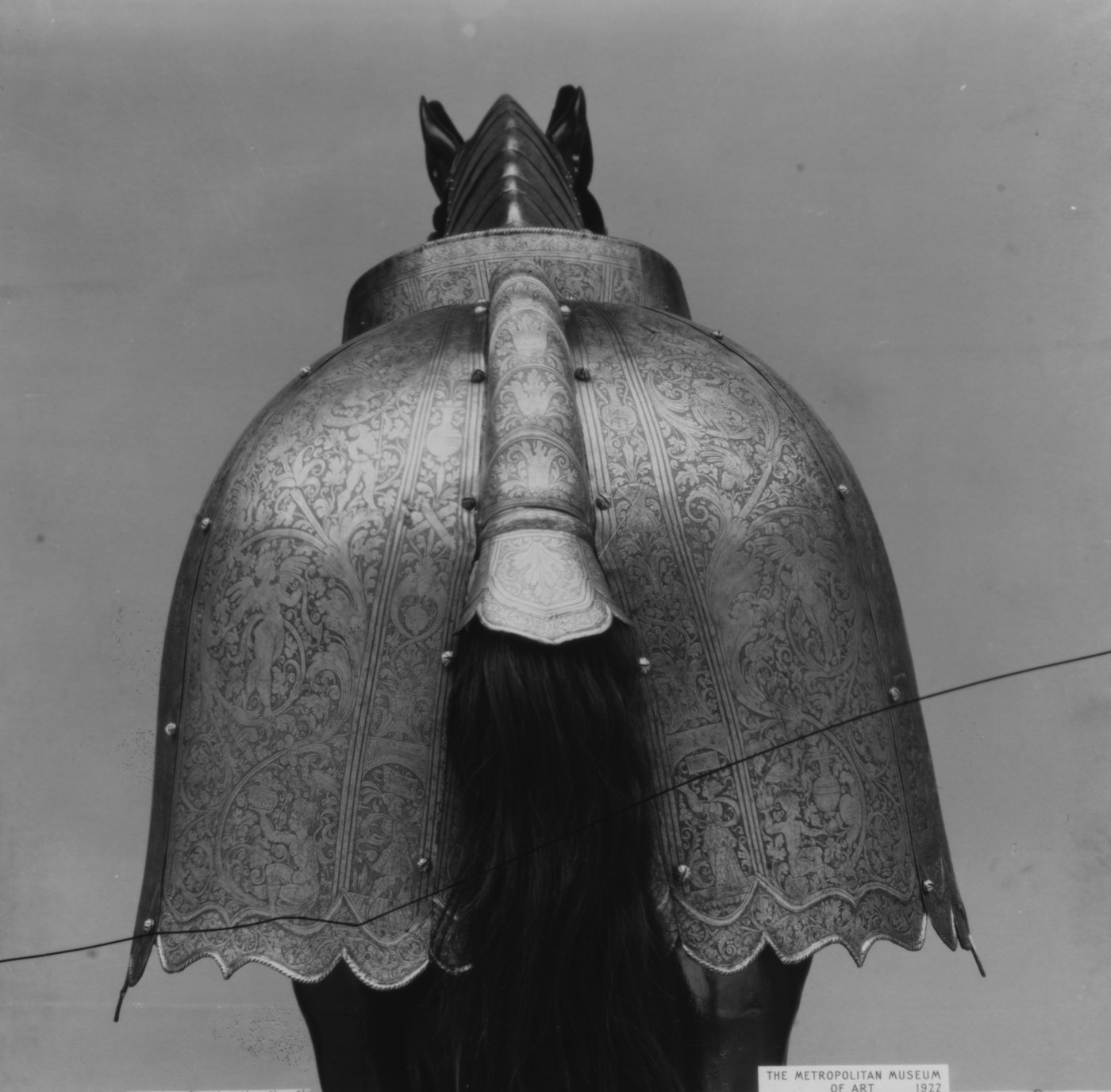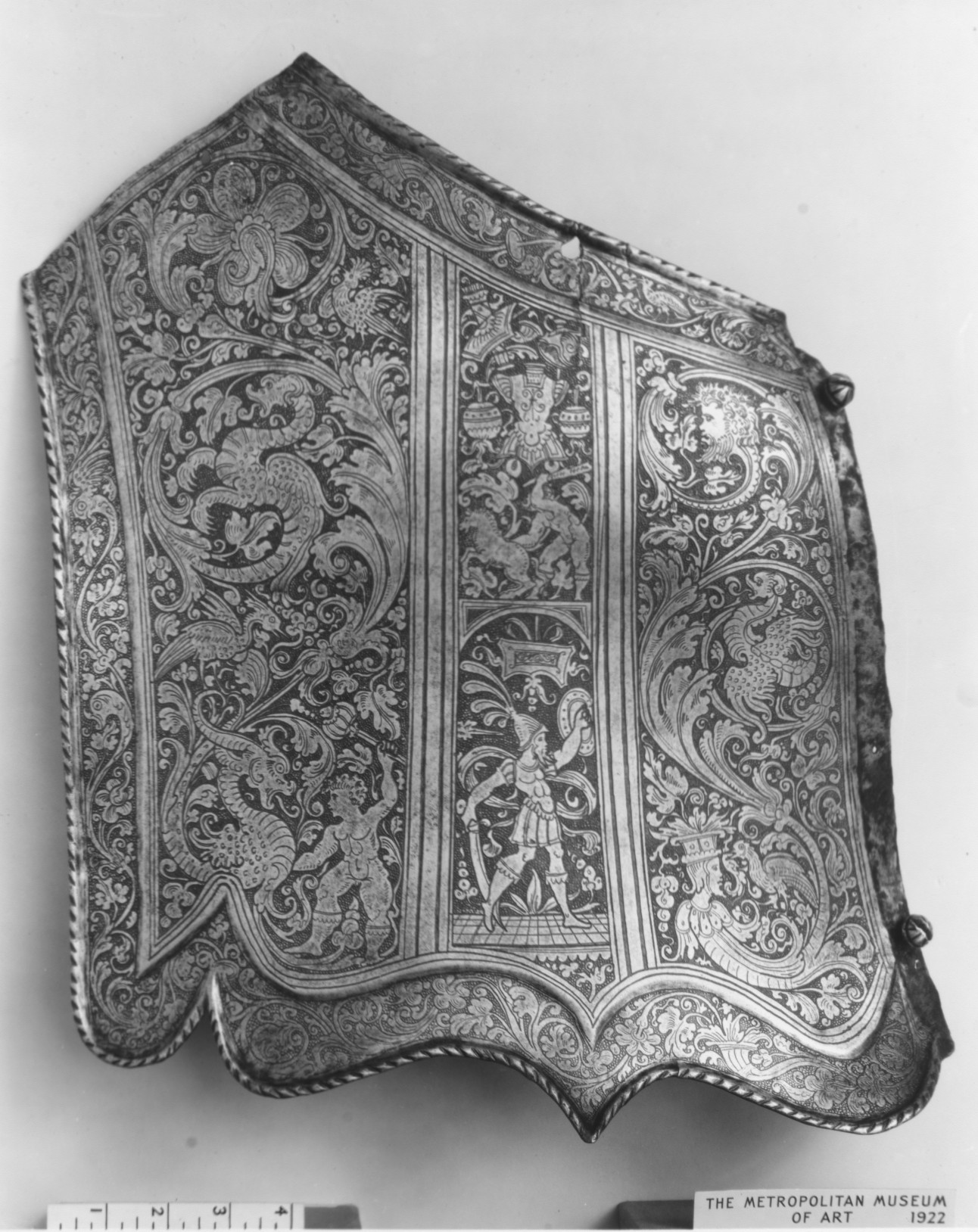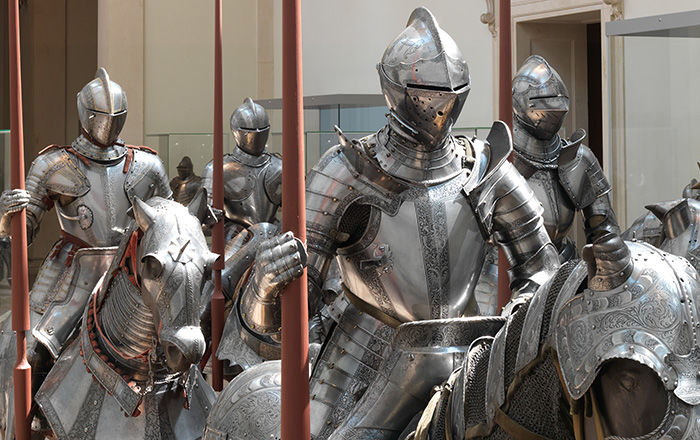Horse Armor Probably Made for Count Antonio IV Collalto (1548–1620)
The horse armor is covered with etched ornament that includes undulating foliage, mythological creatures, winged putti, and heroes from Biblical and Classical history, such as David and Goliath and Marcus Curtius. The exuberant sketchlike quality of the etching and the preference for overall decoration suggest an origin in Brescia, the second most important armor-producing center in northern Italy after Milan. Brescia was the principal supplier of arms to the Venetian Republic. Like another Italian horse armor in the Metropolitan Museum's collection (acc. no. 21.139.2), this example comes from the armory of the counts Collalto at the castle of San Salvatore, near Treviso. It is one of the few complete horse armors to survive from the late sixteenth century, when heavily armored cavalry played a diminishing role in warfare. It was probably made for Count Antonio IV Collalto (1548–1620), possibly in 1589, when he was appointed commander of the Venentian army.
The associated man's armor (acc. no. 14.24.709a–p) is a composite of old and new pieces. Genuine elements from an Italian garniture of about 1570 are combined with restored pieces that were made as substitutions for the missing original parts.
Due to rights restrictions, this image cannot be enlarged, viewed at full screen, or downloaded.
This artwork is meant to be viewed from right to left. Scroll left to view more.
